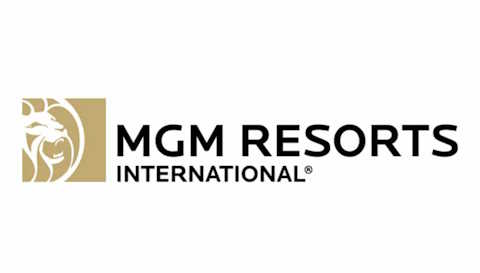
- “A Pennsylvania federal judge determined attorney Douglas Rosenblum and the Pietragallo Gordon Alfano Bosick & Raspanti firm should not be disqualified from criminal proceedings against the company doing business as the now-defunct Par Funding, despite one of the firm’s attorneys having been assaulted by the brother of the company’s former CEO.”
- “The company’s officers, who are co-defendants with CBSG, had argued that Rosenblum and Pietragallo Gordon should be off the criminal case due to their relationship with Gaetan Alfano, a partner at the Pietragallo Gordon who was allegedly assaulted by the brother of Par Funding CEO Joseph LaForte. But Kearney concluded that there was no conflict of interest, and deferred on whether Rosenblum would be a necessary witness for the criminal trial.”
- “The midday attack occurred on Feb. 28 on 19th St. between Chestnut and Ludlow Sts. in Philadelphia while Alfano, who has been serving as counsel for a court-appointed receiver for CBSG and related entities, was leaving a virtual hearing in which he advocated for evicting Joseph LaForte from his Haverford, Pennsylvania, residence.”
- “The defendants had argued that as Alfano is a partner of the firm and serves on the firm’s executive committee, the criminal charges ‘present trial counsel with a potential conflict between trial counsel’s fiduciary obligations to G.A. — a colleague of the same law firm — and his obligations to CBSG.'”
- “CBSG argued that it could ‘think of no circumstance under which it would call Rosenblum as a witness in its case-in-chief, either to authenticate evidence or to provide substantive testimony,’ and therefore it didn’t appear ‘that Rosenblum’s continued representation of CBSG runs afoul of Rule 3.7,” which holds that a lawyer “shall not act as advocate at a trial in which the lawyer is likely to be a necessary witness,” with the exception of “certain delineated circumstances.'”
- “In Kearney’s July 12 memorandum, the court said in a footnote that it disagreed with the defendants’ argument that Rosenblum couldn’t represent CBSG and have Alfano be a witness for the prosecution on the charges against the LaFortes.”
- “‘The charged assault of G.A. did not change or create new conflicts for attorney Rosenblum. Attorney Rosenblum represents to us his law partner G.A. will not be testifying against Complete Business Solutions because Complete Business Solutions is not charged with crimes against G.A.,’ Kearney said. ‘We find no conflict of interest arising from G.A. identified as an alleged assault victim in charges not brought against Complete Business Solutions.'”
- “The court further noted that Rosenblum had satisfied the requirements of Pennsylvania Rule of Professional Conduct 1.7(b) ‘by obtaining informed consent and a waiver from Complete Business Solutions to continue representing it in this matter,’ therefore, removing any potential or actual conflict of interest that could have existed.”
“Taft Stettinius Missed Conflicts In Rush To Merge, MGM Says” —
- “MGM Resorts International is suing its ‘loyal legal advisers’ Taft Stettinius & Hollister LLP in Michigan state court, alleging the firm violated professional conduct rules by merging with another firm that was representing MGM’s opponent in an arbitration without telling the company about it.”
- “MGM sued in Wayne County Circuit Court on Tuesday, asking for Taft Stettinius to be disqualified from representing its adversary in an arbitration over alleged diversion of internet gaming revenue and for the court to declare that the firm violated the Michigan Rules of Professional Conduct by simultaneously representing both sides of the dispute.”
- “MGM alleges that Taft Stettinius, ‘in its rush to merge with another law firm,’ cast aside its obligations to existing client MGM and started representing a claimant in the pending arbitration against MGM.”
- “‘When MGM confronted Taft with its disloyalty, Taft purported to fire MGM as a client to ‘cure’ the conflict — a tactic forbidden by Michigan law,’ MGM wrote.”
- “Taft Stettinius has represented MGM since 2009 in credit and bond financing transactions, with regulatory advice on gaming issues across numerous jurisdictions, in property tax and liquor licensing issues and during the sale of multiple MGM entities, according to the complaint. MGM has paid more than $3 million to the firm in legal fees since 2014, MGM says. In September, Taft Stettinius merged with Jaffe Raitt Heuer & Weiss PC, which was representing Partners Detroit, a claimant in a ‘contentious arbitration’ opposite MGM, according to the complaint.”
- “MGM didn’t know about the merger, and Taft Stettinius didn’t notify MGM that it was taking on a conflicting party, the company says. MGM discovered the conflict when a demand in the arbitration case came in the same letterhead Taft Stettinius had used to give MGM legal advice, according to the complaint.”
- “‘Either Taft’s pre-merger conflict screening was seriously deficient, or Taft perceived its conflict yet chose not to alert MGM,’ MGM said.”
- “The conflict would result in MGM’s in-house counsel being cross-examined by Taft Stettinius attorneys in the arbitration while MGM was receiving legal advice on other matters from other Taft Stettinius attorneys, the complaint says.”
